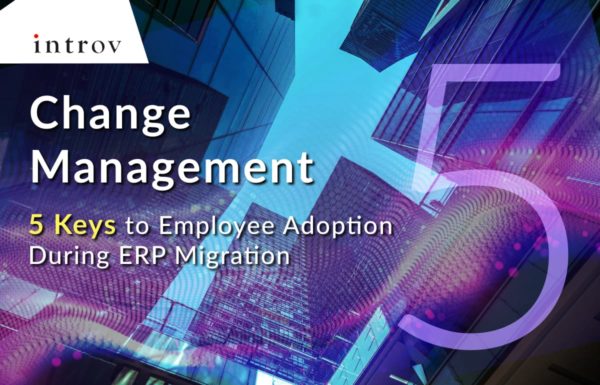When it comes to ERP solutions, Oracle NetSuite and Microsoft Dynamics NAV (commonly known as Navision) stand out as two dominant players. But how do they really stack up against each other? Whether you’re an SME looking to upgrade your backend system or a large enterprise weighing options, understanding the core differences between these platforms could make or break your digital strategy.
Here’s a breakdown of NetSuite vs Navision across 10 critical dimensions:
| Category | Oracle NetSuite | Microsoft Dynamics NAV (Navision) | Summary Verdict |
| Deployment & Hosting | Fully cloud-based SaaS solution | Traditionally on-premise, newer versions support hybrid/cloud | NetSuite offers cloud-native flexibility |
| User Interface & Experience | Modern, responsive web-based UI | Older UI; enhanced only through upgrade to Business Central | NetSuite delivers better usability and mobile access |
| Customization & Extensibility | SuiteScript, SuiteFlow, built-in tools | Customizable via C/AL and AL (requires more dev effort) | Both are flexible; NetSuite is more user-friendly |
| Integration Capabilities | Oracle-native and third-party integrations | Strong Microsoft ecosystem integration (e.g., Office 365, Power BI) | Depends on stack alignment |
| Financial Management | Advanced global financials with multi-subsidiary support | Strong local financial features, but may lack scalability | NetSuite excels for multinational operations |
| Inventory & Supply Chain | Advanced features like demand planning and WMS | Basic functionality; enhanced via add-ons | NetSuite leads in out-of-box capabilities |
| CRM Capabilities | Integrated CRM suite | Limited CRM; often supplemented with Dynamics 365 Sales | NetSuite provides all-in-one CRM |
| Pricing Model | Subscription-based, module/user-specific | License model plus setup; less transparent | NetSuite offers more predictable pricing |
| Reporting & Analytics | Real-time dashboards, saved searches, KPI tracking | Reporting via custom setups and Power BI | NetSuite has stronger native analytics |
| Scalability & Global Reach | Designed for global expansion (200+ countries supported) | Strong in localized deployment; scaling requires customization | NetSuite built for international growth |
1. Deployment & Hosting
- NetSuite: 100% cloud-based SaaS solution. No hardware, no hassle.
- Navision: Traditionally on-premise, with newer versions supporting cloud and hybrid models.
- Verdict: NetSuite offers true cloud flexibility; Navision gives more control (but more IT overhead).
2. User Interface & Experience
- NetSuite: Modern web UI, responsive design, optimized for mobile.
- Navision: Older interface with limited web access unless upgraded to Dynamics 365 Business Central.
- Verdict: NetSuite wins on intuitiveness and accessibility.
3. Customization & Extensibility
- NetSuite: Built-in customization tools like SuiteScript, SuiteFlow.
- Navision: Highly customizable with development capabilities using C/AL and AL.
- Verdict: Both are flexible; Navision may require more dev effort.
4. Integration Capabilities
- NetSuite: Strong native integrations with Oracle ecosystem and third-party apps.
- Navision: Integrates well with Microsoft stack, e.g. Office 365, Power BI.
- Verdict: Pick NetSuite for broader integrations; Navision if you’re deep in Microsoft.
5. Financial Management
- NetSuite: Comprehensive accounting features with multi-subsidiary support.
- Navision: Solid financial tools; excels in local compliance but may lack scalability.
- Verdict: NetSuite leads for global scalability.
6. Inventory & Supply Chain
- NetSuite: Advanced inventory tracking, demand planning, and WMS.
- Navision: Basic functionality unless extended with add-ons.
- Verdict: NetSuite is more robust out-of-the-box.
7. CRM Capabilities
- NetSuite: Integrated CRM system for sales, marketing, and support.
- Navision: Limited CRM; typically paired with Dynamics 365 Sales.
- Verdict: NetSuite provides an all-in-one solution.
8. Pricing Model
- NetSuite: Subscription-based; pricing varies based on modules and users.
- Navision: License + implementation costs; can be unpredictable.
- Verdict: NetSuite is more transparent, though not necessarily cheaper.
9. Reporting & Analytics
- NetSuite: Real-time dashboards, KPI tracking, saved searches.
- Navision: Custom reports available; Power BI enhances capabilities.
- Verdict: NetSuite has better built-in reporting.
10. Scalability & Global Reach
- NetSuite: Used by companies in 200+ countries; built to scale.
- Navision: Better for localized operations; scaling requires work.
- Verdict: NetSuite is ideal for global growth.
Choosing between NetSuite and Navision isn’t just about features—it’s about business fit. NetSuite is designed for fast-growing and global businesses seeking an all-in-one solution, while Navision works well for companies deeply embedded in the Microsoft ecosystem and preferring customization-heavy deployment.
Want help implementing NetSuite? Talk to the experts at Introv Limited.









